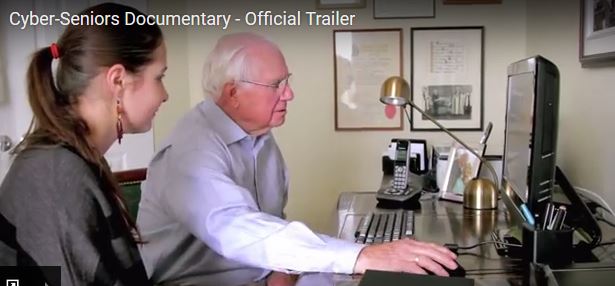Registration has started for the Pharmacy Partnership for Long Term Care Program. This innovative collaboration facilitates free, on-premises COVID-19 vaccinations for senior living providers. CDC facilitates vaccination services for senior living residents The Center for Disease Control (CDC) has partnered with CVS and Walgreens pharmacies to offer vaccination services for residents of senior facilities. The new program, called Pharmacy Partnership for Long-term Care (LTC), “provides end-to-end management of the COVID-19 vaccination process, including cold chain management, on-site vaccinations, and fulfillment of reporting requirements, to facilitate safe vaccination of this patient population, while reducing burden on LTC facilities and jurisdictional health departments,” reports the CDC. Senior living providers gain free access to services such as: on-location clinic dates orders for the vaccine and necessary supplies vaccine administration cold chain management for the vaccine reporting to local, state and federal jurisdictions compliance with Centers for Medicare & Medicaid (CMS) COVID-19 testing requirements for LTCF staff Skilled Nursing facilities (SNF) must register through the National Healthcare Safety Network. Assisted living facilities (ALF) must register via REDcap. Registration is non-binding and facilitates may opt out at any time. What to expect during Pharmacy Partnership for Long-term Care registration Providers will have the opportunity to select between CVS and Walgreens as their pharmacy partner for the initial phase of the vaccinations. After the initial phase (about two months) facilities may chose a pharmacy provider of their choice. Online sign-up details will be disseminated through the providers’ communications channels including but not limited to websites and email. The CDC will coordinate facilities’ preferences with the pharmacy partners. Please be advised that the CDC may reassign facilities to accommodate availability and other considerations. Registrations for the program ends November 6. Explore FAQ regarding the Long-Term Care Program for COVID-19...
OHCA Convention
Portland long-term care summit
Senior Living is headed to Portland as the Oregon Health Care Association (OHCA) hosts its Annual Convention & Trade Show, the largest long-term care conference in the state, on September 17 and 18. The event, expected to draw 1,200 attendees including owners, regional managers, administrators, nurses, department heads and direct care staff, takes place at the Oregon Convention Center. This year’s theme, “Experience the Music of Life,” is inspired by senior living staff and communities that encourage residents to live rich lives and enjoy each moment. A musical thread will weave its way throughout the conference: participants can observe music therapy best practices during the featured Music & Memory luncheon, which focuses on the use of music as a non-pharmacological remedy for residents facing challenges. Attendees are also invited to join the fun at an 80s themed dinner and karaoke event. The convention is set to close with an awards ceremony sponsored by Yardi. Keynote speaker Eddie Slowikowski, gold medal winner for the USA track and field team, will open the event with an address that encourages attendees be the best version of themselves in order to be stronger leaders. Over forty informative sessions, including many earmarked for continuing education units, are on the convention schedule. View complete session in the conference brochure. While exploring the trade show exhibitors, attendees are invited to discover Yardi’s single connected solution for senior living by visiting Booth...
Bridging the Digital Divide
Sienna Senior Living
We live in an increasingly connected society, with unlimited data at our fingertips and the ability to communicate quickly with friends and family living next door or half-way ‘round the world. There’s an ease and level of expectation we take for granted when it comes to bending the latest technology to our will, but for many senior citizens, modern digital tools and gadgets often seem complicated and out of reach. It’s a generational gap the Cyber-Seniors program hopes to bridge through its innovative approach to senior education. For Sienna Senior Living, participating in the program is a natural extension of the company’s commitment to providing its clients with comfort, independence and “the warmth of human connection” through its forward thinking, resident-centered approach to senior care. The brainchild of two teenage sisters inspired by the impact of the Internet on the lives of their own grandparents, Cyber Seniors began in earnest in 2009. Through the program, high school students help seniors develop a technology skill set that allows them to use computers, the internet and other digital tools to connect with friends, family and their community. Over the years, the program has collaborated with the University of Toronto Occupational and Therapy Masters Program and Sienna Senior Living to develop a best practice resource manual to ease implementation of similar programs throughout Canada across all Sienna Senior Living Retirement Residences and Long Term Care Homes. Last year’s pilot projects involved residents at the Cedarvale and Villa Leonardo retirement communities. As Sonia Roul, Recreation and Leisure Consultant for Sienna Senior Living’s Long Term Care Division, explains, the Cyber-Seniors “empowers the residents to go beyond their walls and explore what the world of technology can offer them.” “Our hope was to help our residents connect with their loved ones in a new way,” says Roul, “while also providing them with the opportunity to connect on a human level with a much younger generation.” Refreshed Spirits and Enhanced Health For those involved in the project, the Cyber Seniors program is more than just a computer class; it’s a source of life enrichment for all the participants. By pairing interested retirees with volunteer high school students, the Cyber Seniors program creates a cooperative, mutually rewarding learning environment. The hope is that the program will prompt meaningful, multi-generational conversations and inspire new interests amongst residences in the senior living communities. For Sienna Living, the appeal of the Cyber Seniors program primarily involves the chance to create bonds and build connections between residents and the community. As a source of entertainment and physical and psychological enhancement, the program aims high and hits the mark. As seniors become more comfortable accessing the World Wide Web and using YouTube, Skype and more, they broaden their horizons and connect with the outside world while also building long-lasting friendships. “Breaking down the barriers of communication through learning and development truly does wonder for the residents and students involved,” declares Roul. “The bonds created between the students and the residents were unexpectedly powerful,” Roul explains. “They were able to create connections with past lifestyles, and there was a mutual exploration across natural areas of interest.” The seniors are full of admiration for their teen advisers, dazzled by their ability to navigate the online universe, and heartened by the supportive and encouraging learning environment created by their young instructors. “To see them be so young but know so much is amazing,” explains a Cedarvale resident in a video about the program. For the teens, the benefits of assuming the mantle of Cyber Senior instructor allows them the opportunity to experience leadership roles while also forging intergenerational relationships. “It feels awesome,” declares a teen participant in the video. “It feels like you’re bridging the gap between the past and now.” Broadened Horizons and Deepened Connections In June of 2014, the Sienna Senior Living’s Cedarvale Lodge Retirement and Care Community in Keswick Ontario collaborated with...
Senior Housing
Limited Middle-Income Options
The market’s supply of long-term care facilities for middle-income Baby Boomers lags woefully behind rising demand. Affluent seniors have access to mountain resort-style lodges and low-income seniors receive some provisions through the Medicaid State Assisted Living Waiver Program. Baby Boomers and Echo Boomers who fall somewhere between income brackets have disproportionately fewer options within their price range. A lack of social pressure could prolong the problem. Most Boomers aren’t aware that they are facing a housing crisis. As such, they aren’t applying the pressure needed to encourage serious progress in the industry. Bankers Life and Casualty Co. recently published “Retirement Care Planning: The Middle-Income Boomer Perspective.” The study reveals that only one-third of participants believe they will need long-term care. In the case that they do require senior housing, participants estimate the cost at about $47,000 per year. Participants’ assumptions are a far cry from data-driven projections. According to the U.S. Department of Health and Human Services, more than 70 percent of this demographic will require long-term care. By the time that Boomers enter specialized housing, the costs will be closer to $90,000 each year. Whether the costs are $47,000 or $90,000, Boomers aren’t prepared to pay up. 70 percent of participants have no retirement plan. Only 56 percent have considered how they will pay for housing; of that amount, 88 percent do not own long-term care insurance. 78 percent are under the impression that Medicare will pay for long-term care or are otherwise unsure of how their care will be financed. A lack of planning and savings doesn’t minimize what seniors expect if and when they enter a long-term care facility. Boomers aren’t asking for sprawling spaces with gold plated commodes. Rather, the highest expectations fall in the areas of location and mental...




